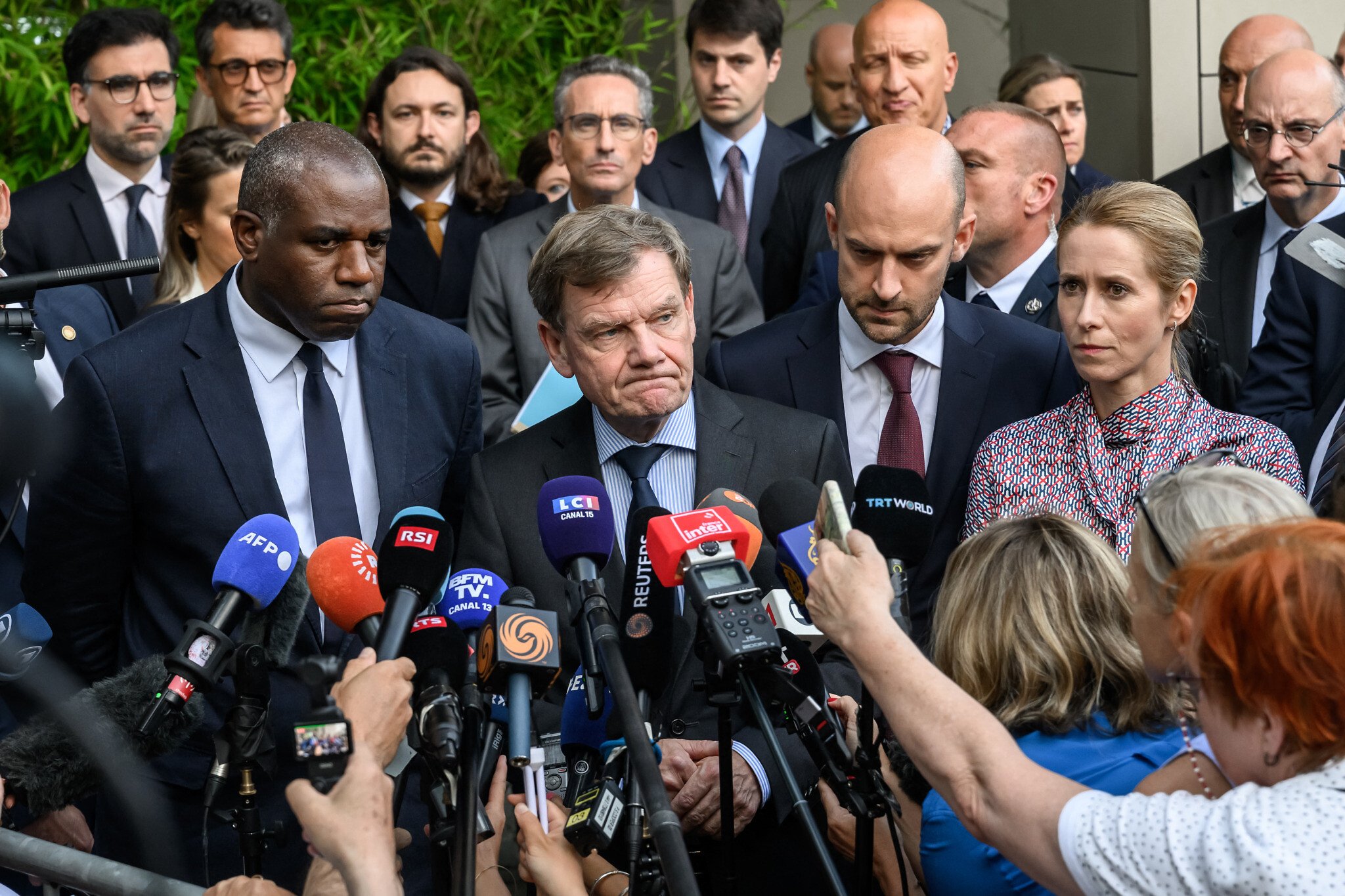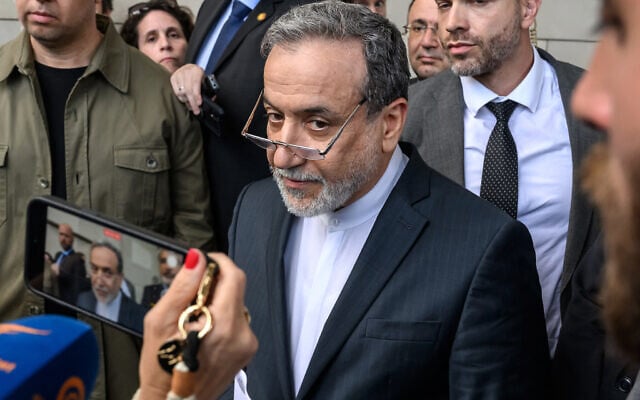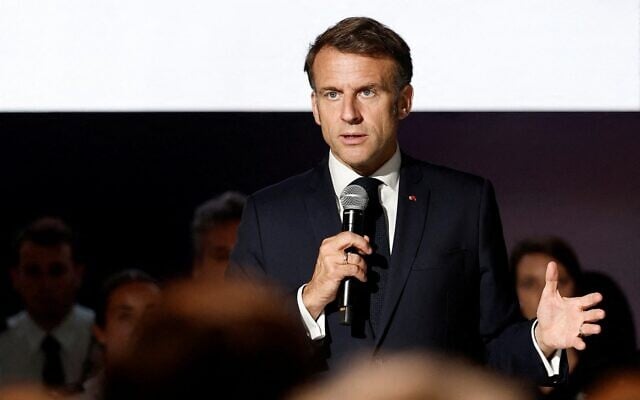



A senior Iranian official said on Saturday that proposals put forward by European powers at talks in Geneva about his country’s nuclear program were “unrealistic,” suggesting that if they stuck to them, it would be difficult to reach an accord.
There were few signs of progress on Friday after the foreign ministers of Britain, France and Germany, known as the E3, plus the EU, met their Iranian counterpart, Iranian Foreign Minister Abbas Araghchi, in a bid to prevent the conflict between Israel and Iran from escalating.
On June 13, Israel launched a campaign of airstrikes in Iran to destroy the Islamic Republic’s nuclear and ballistic missile programs, which Jerusalem characterized as an imminent, existential threat. Iran has responded with deadly barrages of ballistic missiles at civilian population centers and military targets in Israel.
Iran, which vows to destroy Israel, has always denied any ambition to develop nuclear weapons, but its enrichment levels reach far beyond any civilian purpose, and the IAEA says it has obstructed inspectors from visiting its nuclear sites. Israel says Tehran recently engaged in active steps to build a bomb.
European diplomats have urged Iran to revive diplomatic efforts with the United States to find a solution in the standoff over its nuclear program, but Tehran warned it could only consider diplomacy once Israel halted its bombardment.
“The discussions and proposals made by the Europeans in Geneva were unrealistic. Insisting on these positions will not bring Iran and Europe closer to an agreement,” the senior official told Reuters while speaking on condition of anonymity.

“In any case, Iran will review the European proposals in Tehran and present its responses in the next meeting,” the official said.
Both sides signaled on Friday their readiness to keep talking, although no new date was set.
European diplomats said Friday’s talks had been aimed at testing Tehran’s willingness to negotiate a new nuclear deal, despite there being no obvious prospect of Israel halting its attacks soon.
While neither side disclosed details of what was put forward, two European diplomats said the E3 did not believe that Israel would accept a ceasefire in the near term and that it would be difficult for Iran and the US to resume negotiations.
They said the idea was to begin a parallel negotiating track, initially without the US, on a new deal that would involve tougher inspections, including potentially of Iran’s ballistic missile program, while allowing Tehran some uranium enrichment capacity.
French President Emmanuel Macron on Saturday said talks will be stepped up in an effort to avoid greater conflict.

“I am convinced that a path exists to end war and avoid even greater dangers,” Macron said in English on X after holding phone talks with Iranian President Masoud Pezeshkian.
“To achieve this, we will accelerate the negotiations led by France and its European partners with Iran.”
Macron reiterated that “Iran must never acquire nuclear weapons.”
“It is up to Iran to provide full guarantees that its intentions are peaceful,” he added.
He once again demanded that Iran release French nationals Cecile Kohler and Jacques Paris, who have been held since May 2022 on espionage charges that their families reject.
“Their inhumane detention is unjust,” Macron said. “I expect them to return to France.”
Despite some European ministers suggesting on Friday that Iran was more ready to talk about issues beyond the nuclear program, the senior official dismissed the possibility of negotiating its defensive capabilities, including its missile program, and repeated that the idea of zero enrichment of uranium was a dead end.
Israel says its sweeping assault, launched on June 13, on Iran’s top military leaders, nuclear scientists, uranium enrichment sites, and ballistic missile program is necessary to prevent the Islamic Republic from realizing its avowed plan to destroy the Jewish state.
Iran has retaliated by launching over 470 ballistic missiles and around 1,000 drones at Israel.
So far, Iran’s missile attacks have killed 24 people and wounded thousands in Israel, according to health officials and hospitals.
Some of the missiles have hit apartment buildings, a university, and a hospital, causing heavy damage.
